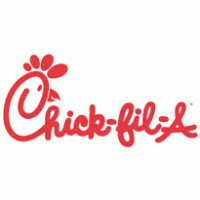
How many times do salespeople drive by a big chain franchise and say to themselves ‘I’m not calling on them, all their advertising is probably handled by corporate.’ Here’s one big reason why that should never happen.
Our thanks to Dave Combs and his team at MBC Grand Broadcasting in Grand Junction for bringing us this advertiser success story. Joe Walsh is the owner of the Chick-fil-A franchise in Grand Junction, Colorado. He took over the franchise in 2014, started using radio, and business has been booming ever since.
Walsh tells Radio Ink he’s in the restaurant business but he likes to say he’s in the people business and just happens to sell chicken. “I have the pleasure every day of serving thousands of guests through my restaurant. We like to serve good food quickly, in a clean environment by friendly people, and that is what we do day in and day out. I love every minute of it.”
Radio Ink: Since Chick-fil-A is a national company how does the local advertising work?
Joe: The unique part about the Chick-fil-A franchise is they like their operators to be involved in the store. That is why you are only allowed to have one franchise or potentially two in some circumstances. I am involved in day-to-day operations. We have grown a lot of our business by word of mouth and by performing. Everybody can hear great stuff about you but when they come into the store, if they don’t have a great experience, they’re not going to come back. When we are thinking about advertising locally, we think about what type of advertising will help us tell the story best to the guests that we currently have and the ones we want to have.
Radio Ink: How did the relationship with the radio stations and Dave begin?
Joe: I was a new operator and I had maybe been here a month. A couple guys approached me and said they were with the radio and wanted to talk to me. As a new operator everybody wanted to have meetings with me, the landscapers the electricians everybody wanted my business. They met with me and it was more a “Let’s get to know each other and build a relationship and trust.” I had come from corporate America and listen to streaming music, so radio was not even on my radar. I would say thank you, they would move on, and a couple weeks later they would come back. Over a period of six months they were able to educate me on the advantages of radio.

Radio Ink: I’m sure you are getting called on by people who want you to advertise with them constantly, how do you decide which ones you will actually see?
Joe: I always listen to everybody. We have an advantage in Grand Junction because it is not a huge town. There are not like thousands of people marketing to me. I listen to their pitch and make a decision based on what they say. I give everybody a listen.
Radio Ink: What made you decide to give this a try?
Joe: We developed a relationship over about six months. They were not just bringing me numbers, like you spend X amount you get X amount, they were showing me the advantages how radio would help me connect with my guests. My dad has been a salesman all his life and he would say, “You’re selling a product but you’re selling benefits to the customer.” That is what they were doing. This is what the benefit is to you by advertising with this radio group.
Radio Ink: Dave, what was your philosophy about calling on new clients like that? It seems like you didn’t overwhelm them.
Dave: Our philosophy is we never set an artificial timeline. It is not about getting the sale today, it’s about building the relationship to build their business forever. That is how we always want to approach things. I am pleased to hear he was educated about the benefits of radio. In our marketplace, from our organization, we have never tried to overwhelm people with statistics and polls etc. We approach it from an individual experience and process: “Does this make sense to you?” I think it is a strong and compelling case for radio and I believe it’s the most influential form of media that there is today.
Radio Ink: Joe, you start using radio for the first time. Why do you think it was working and how do you think it’s going now?
Joe: I know it is working because as I am around town, Grand Junction is 160,000 people in the valley, so it’s not small but it’s not huge. I will be at the bank with nothing that identifies who I am and I’ll walk up to a teller, make a deposit, and she will say, “I love your commercials,” because she recognized my voice. I’ve been out having dinner with friends and people have recognized my voice and say, “Hey, great commercials. We love them!” My daughter, who is 10, does the commercials. We have had people come in and say, “I heard a commercial for your new product done by a sweet little girl and I decided to come here because of that.” So people tell us and that’s how I know we’re successful.
Radio Ink: As far as the creative goes, are you using local ads and local voices or do you use corporate on that?
Joe: No, my wife does commercials and I record the commercials and my daughter and the managers will record commercials. Everybody in the store does. We are working on some Spanish-language commercials which will be people from my store.
Radio Ink: Tell us about the relationship with the company?
Joe: I like that it is a long-term relationship, not a let’s-get-your-money relationship.
Radio Ink: What is the perfect way to call on a business like yours?
Joe: I am not a subject-matter expert but I know what my preferences are. It varies by who the person is. That is the skill of the radio station, to know how to build relationships. They build their business by building relationships.
Radio Ink: What advice do you have for other advertisers nationally who are considering using radio but might be afraid because they think it is old and it doesn’t work? What would you say to people like that?
Joe: I was skeptical at first because it wasn’t in my wheelhouse. The radio station did such a good job educating and opening my mind to what radio can do and has done for us.
Dave: I don’t do most of the day-to-day interaction with Joe but we all know Joe and appreciate him. This was an operation that was corporate, and you know what happens with corporate franchises — usually the money is sucked away. It is put into one pot and then they spend it the way they want to. It is usually not a great goldmine for radio opportunity. That was one of the amazing things about Joe. He took over a stand-alone Chick-fil-A franchise here in the Grand Valley and it had already been nine years in operation when he took over. He has transformed the impact. I would like to think that radio has had an impact on that and I believe it has. The major impact he has done internally, people noticed changes right away. When people came in, they got the experience. We joked that part of the campaign was he has the fastest drive-thru in town, bar none. The amount of growth that he has created in this franchise is a testament to he and his family because you see them on-site working. They move folks through there and treat him right. It is amazing what has happened after that much time with this franchise. I would also tell you that the amount of business that has increased in the Valley from other national chains, I would say they’re six different locations covering four different franchises that have opened since he has started operating Chick-fil-A in this town. He still has his one location right now, but it is an amazing turnaround. There is a lot to be said. It is a nice match and he understands. He is always stepping up to get involved in community. He is always ready to jump on board with us.
Joe: I think the great thing that radio does for us is we can operate inside the building and a lot of our growth is word of mouth, but radio has allowed us to reach people we normally would not be able to turn into new guests. The radio signal goes pretty far to people who don’t drive by our store daily. That is why I decided to go with radio, just the repetition of Chick fil-A to people here. After they have heard it 20 times on the radio, when they are in town they decide to stop in to Chick-fil-A. Radio does that in a way that direct mail or other advertising couldn’t.
Radio Ink: Are you running other advertising or do you just stick to the commercials. Do you do promotions or live reads or remotes?
Joe: We stick with commercials and right now the country radio station is going to be doing a fundraiser for St. Jude and we tie into that. Every cookie we sell, 75 cents goes to that. On the other side of the relationship is whenever we have anything we are doing for community service, Dave allows us to come in here and talk about it. It is a back-and-forth relationship that allows us to increase our presence. We give coupons for on-air trivia contests as prizes and stuff like that.
Radio Ink: You said earlier you are more of a streaming listener. Are you convinced now that people still do listen to radio?
Joe: Oh yes, absolutely. It is a very active market. People are out hiking, working in the oil fields, and making deliveries etc. I don’t know about other markets but for here I know that radio is very powerful.
Radio Ink: Dave, do you want to add anything else?
Dave: As a rule, franchisees for Chick-fil-A, there are probably only about two of you that use local radio?
Joe: I don’t know. I called Chick-fil-A corporate and asked who else was using radio. They gave me some names and I called those people and saw how they were doing it. There are others out there but I don’t know any percentages.
Dave: It is certainly not an overwhelming percentage or majority.
Joe: I know in the Denver area radio is so expensive, and there is no relationship. That is the key here. The relationship we have here is what makes it attractive to us.
Radio Ink: Do you have advice for the radio industry, people reading this about how to do the right thing and create a relationship like you guys have?
Joe: I can tell you what NBC did for me is they treated me like family first, and that’s how the business came. That is how we treat our guests as well. We treat them like family first, knowing that the business will come. They did not see me as a number, they saw me as a family member.





